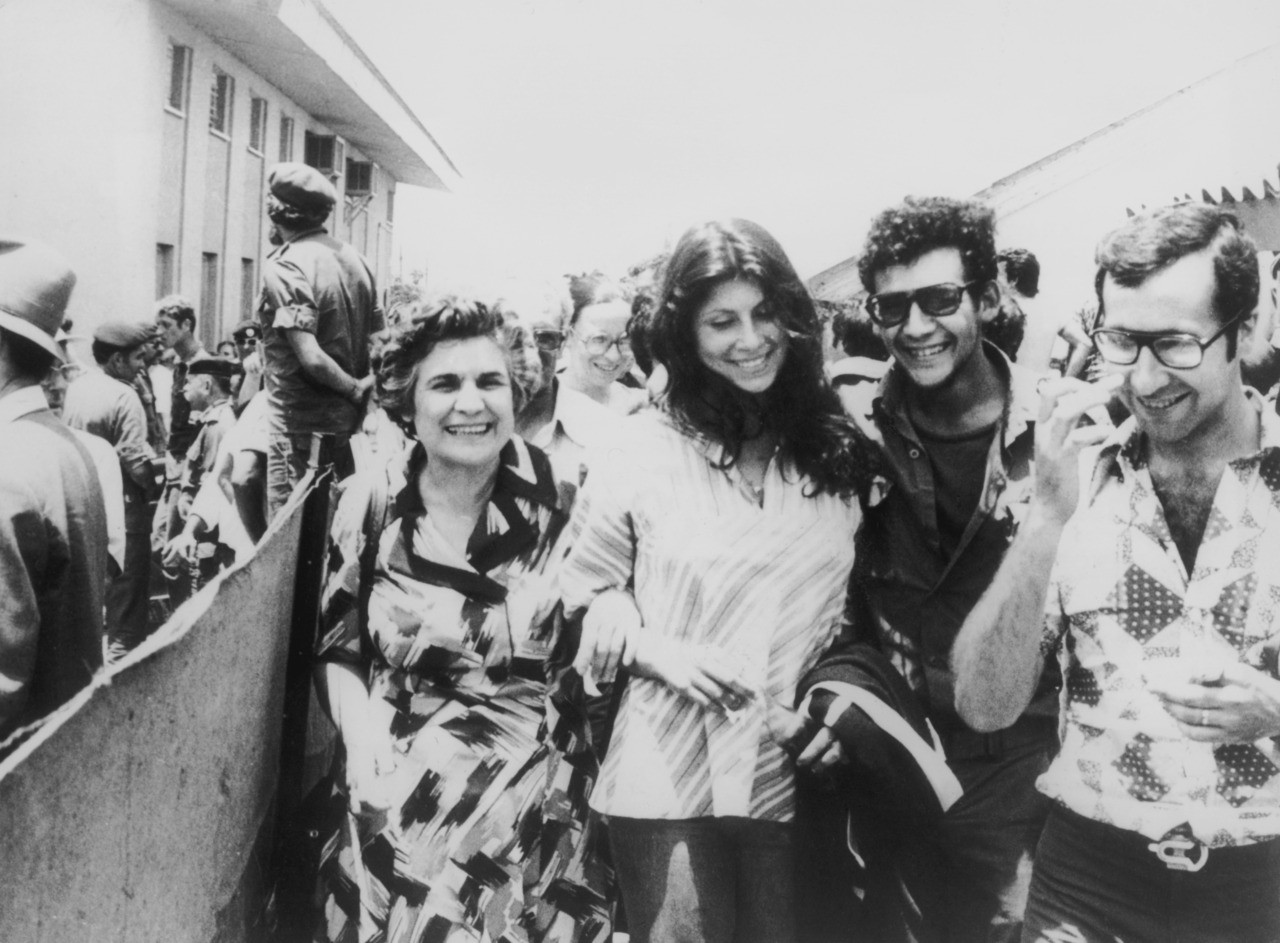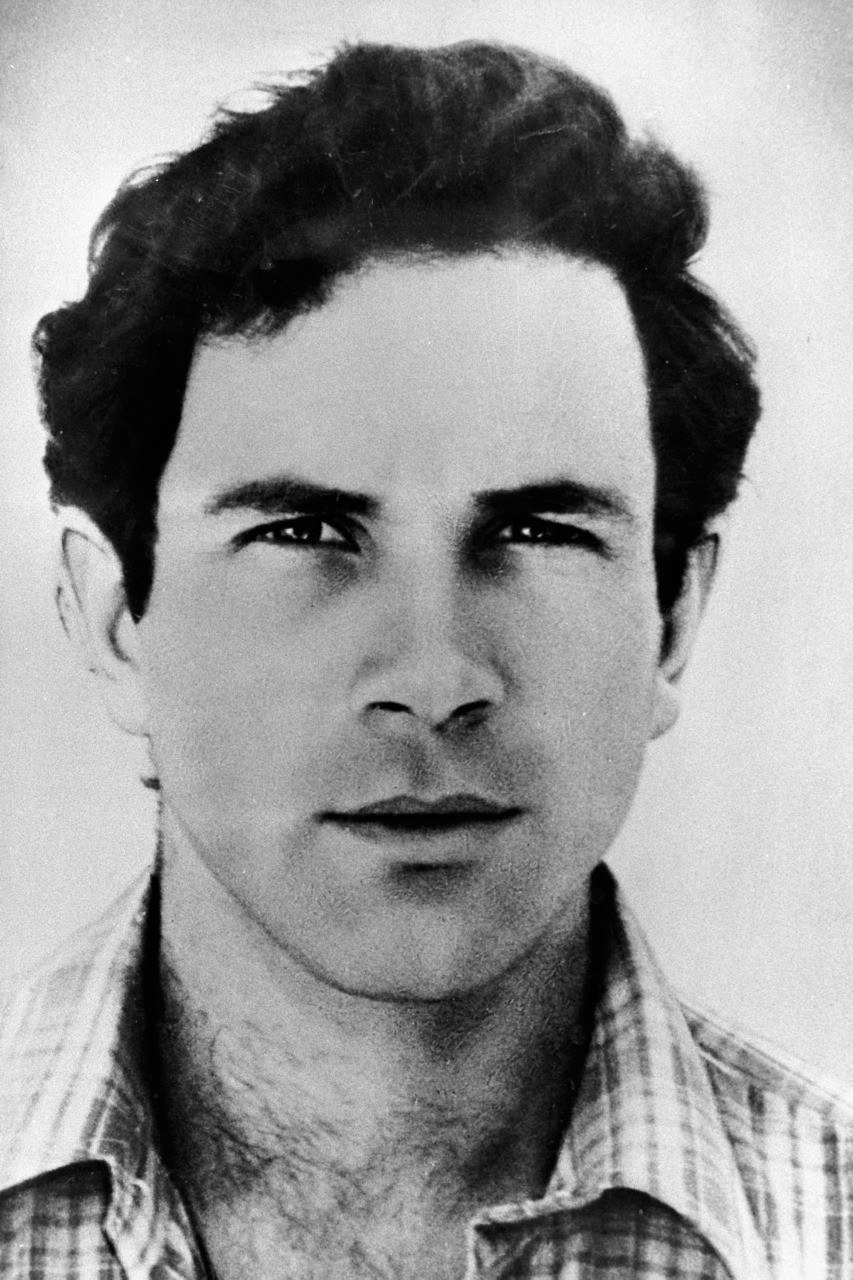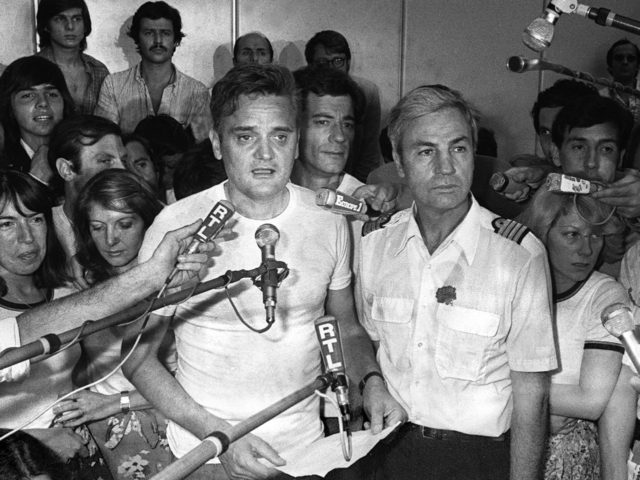(AFP) Nice, FRANCE — A French pilot hailed for bravery during a hijacking drama targeting Jews on an Air France flight in 1976 has died aged 95, his son told AFP on Wednesday.
Michel Bacos (pictured above, right) died in the southern city of Nice, where he had been living since 2006, their son Eric told AFP.
Bacos was flying from Tel Aviv to Paris on June 27, 1976, when Palestinian and German radicals hijacked the aircraft, which was flown to Entebbe in Uganda.
The former French Resistance fighter earned France’s highest award, the Legion d’Honneur, for refusing to leave the plane and ordering his crew to remain with Jewish passengers who were separated from non-Jews.

Israeli hostages on their return to Israel after Operation Entebbe on 3rd July 1976, in which, Israeli special forces rescued 100 hostages held at Entebbe Airport in Uganda by members of the Popular Front for the Liberation of Palestine following their hijack of Air France Flight 139. (Keystone/Hulton Archive/Getty Images)
“By courageously refusing to give into anti-Semitism and barbarism he honoured France,” Nice Mayor Christian Estrosi wrote in a tribute, hailing Bacos as “a hero” and sending condolences to his widow Rosemary and their three sons.
The hijackers boarded the flight during a stopover in Athens and demanded it change course.
After a refuelling stop in Moamer Kadhafi’s Libya, the plane headed to Uganda, then ruled by brutal dictator Idi Amin.
The hostages were freed after six days by Israeli commandos, who launched a raid that has since been re-told in multiple documentaries and films as one of the most audacious special-forces operations in history.

Lieutenant Colonel Yonatan “Yoni” Netanyahu, the commander of the elite Israeli army commando unit Sayeret Matkal who was killed in a daring operation at Entebbe airport to rescue of Jewish hostages from Palestinian and German hijackers. (Photo by GPO via Getty Images)
The commandos freed all but four of the 105 hostages, shooting dead all the kidnappers and several Ugandan troops in the process.
The only Israeli soldier killed in Operation Thunderbolt was Yonatan Netanyahu, the elder brother of Israeli Prime Minister Benjamin Netanyahu.
– Gun to his neck –
In an interview with Israel’s Yedioth Ahronoth newspaper in 2016, Bacos said that as he flew the plane a German hijacker “sat behind me with his gun pointed at my head.
“Every time I tried to look in a different direction, he pressed the barrel of his gun against my neck.”
On arrival in Uganda, the hijackers separated passengers with Jewish names from the rest.
“I told the Palestinians and the Germans: ‘I’m responsible for all of the passengers and demand to be able to see all of them — be they Israeli or not — at any given moment.’ I insisted, and the Germans agreed.”
“As a former officer in the Free French Forces, I couldn’t imagine leaving behind not even a single passenger.”
Two weeks after the hijacking, Bacos was back at work and asked to fly to Israel “to see if I were still afraid.”
That flight, he said, “went without a hitch.”

COMMENTS
Please let us know if you're having issues with commenting.